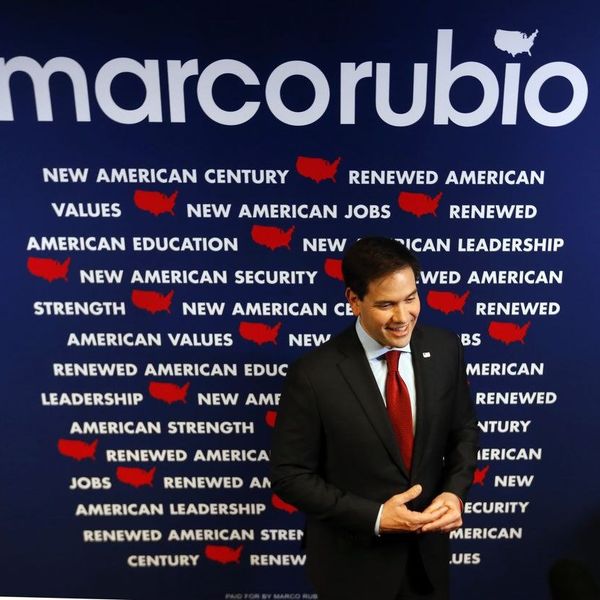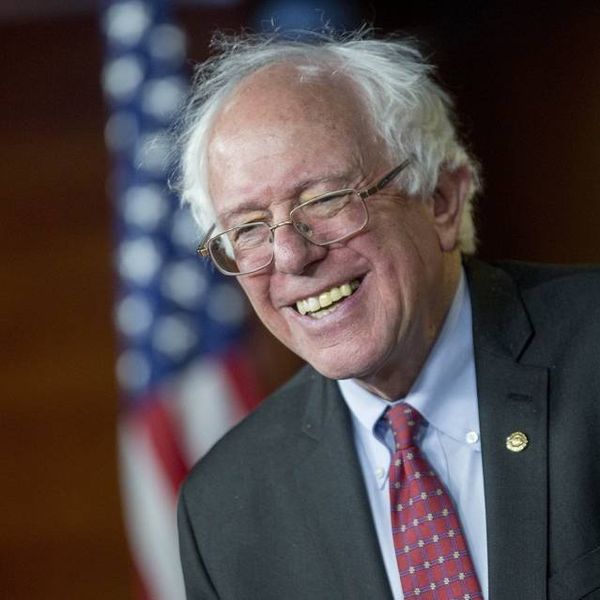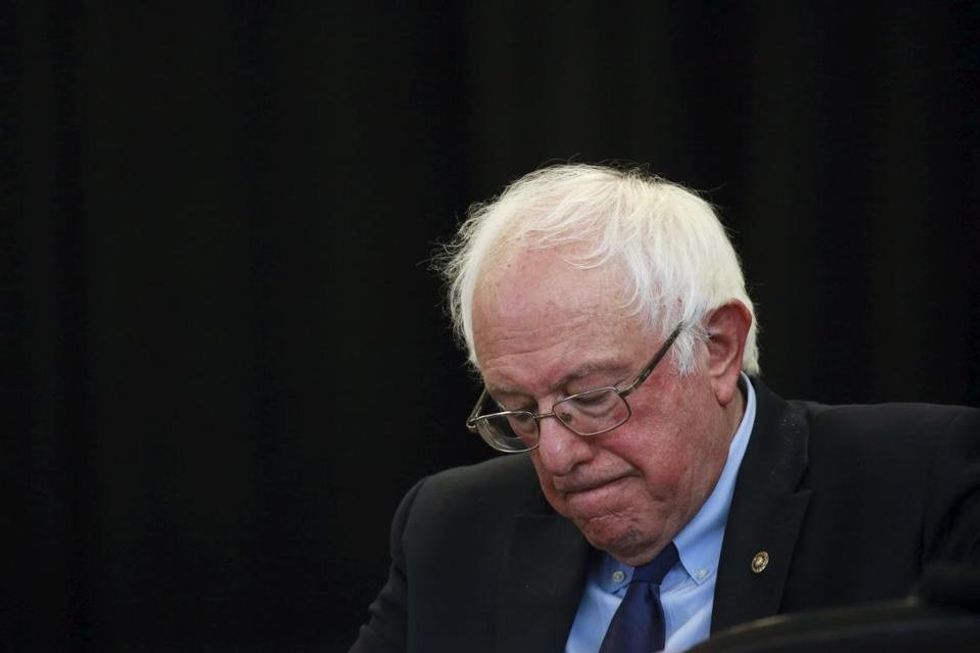Bernie Sanders changed. The demagogue who speaks to massive audiences stands in stark contrast to the man who stood before a modest press conference one year ago to announce his presidential campaign. Somewhere along the way, Senator Bernie Sanders deviated from his message, and abandoned his platform of economic and social justice in a disappointing exchange for cheap rhetoric.
He still talked about these issues but their emphasis to Bernie's campaign became overshadowed and muddied as his electoral path narrowed. His claim to the nomination was no longer based on the possible universal benefits of his domestic policies, but rather reliant on his perceived advantage in irrelevant general election polling. These polls became frequent talking points for Sanders and his surrogates, and rivaled Donald Trump's infatuation with his own polling but these claims came with major implications.
For one, these polls were not very indicative of anything. They attempted to provide insight into the possible outcomes of an election half a year in advance, while one party's nomination remained contested. Further, while this polling was reflective of two and a half decades of Hillary Clinton's national profile, during which she received intensive scrutiny from the media and her political opposition, it did not reflect any major vetting of Bernie Sanders that would come with his nomination. That's not to say that Bernie did not have more potential to defeat Donald Trump, but if that were true, these polls didn't prove that. More importantly, however, not only is the legitimacy of this polling in question, the merits of the argument itself as it pertains to Bernie's claim to the nomination is limited as well.
Sanders campaigned for elections that are more representative and fair, but as his delegate deficit grew, and contests became fewer, he exposed this tenant as dependent on self-interest. He criticized the closed primaries that were disadvantageous to his campaign for their exclusion of independents, but said nothing of the electoral concerns surrounding caucuses, which are far more detrimental to voter turnout. Perhaps he would have given caucuses their much-deserved attention on this issue if they didn't provide him with his best results. This was the first void in Bernie's advocacy for fair elections, but he undermined his entire position when he placed the uncertain validity of polling for November over actual election results.
When May came, Bernie Sanders faced a pledged delegate deficit close to 300 with only a fourth of pledged delegates remaining. In a process that allocates delegates proportionally, delegate leads are difficult to extend, and delegate deficits are difficult to reduce. Of the remaining 1,016 pledged delegates at the time, Bernie needed to acquire 653 of them in order to reach a majority of pledged delegates. That meant receiving 65 percent of the vote in every remaining contest, where California and New Jersey comprised of 60 percent of the available delegates. There was never any question that Hillary Clinton would be victorious in New Jersey, and while Bernie Sanders appeared to have a chance for victory in California, it was highly unlikely that he would do so by a 30 percent margin. Even by this point, it was evident that Bernie Sanders would not obtain his goal of winning the majority of pledged delegates, and that's when an interesting twist occurred: Super Delegates began to matter.
The opinions vary regarding when Bernie Sanders lost. Some say it came with AP's projection on the eve of the California Primary, while most accept the day after when Hillary acquired the majority of pledged delegates and declared her victory. There are even those who cling to the delusion that Bernie hasn't lost yet, however the unceremonious death of his campaign occurred when his strategy shifted toward convincing the party leaders to do exactly as he had previously feared they would: to ignore the voters.
For months, Bernie Sanders attacked the undemocratic nature of the institution of Super Delegates, and rightfully so. It would be wrong for the party to override the people's choice, but when general election polling apparently indicated that Bernie Sanders would be the stronger candidate in November, this combined with his dwindling hopes in the upcoming contests created a critical reversal within the very foundation of his candidacy. This was the confirmation of previous implications that votes only really mattered to him so long as they were cast in his favor.
Bernie's newfound appreciation of the DNC's Super Delegates was the most blatant development to mark an effective end to a disingenuous crusade for fair elections, but as his campaign struggled with a delegate deficit throughout almost the entirety of the process, discrediting Hillary Clinton's voters had already become a part of his candidacy. At the final debate back in April, Bernie excused his failure in Southern states as a reflection of their ideological status as the most conservative region in the country. This argument was common amongst his supporters during the early stages of the Primary, but contained several indiscretions.
Many made the point that Bernie fared better in blue states, and it is true that at the time of his statement, Bernie Sanders led Hillary Clinton in the delegate count from states that voted for President Obama in 2012. He only led by a matter of six delegates, but he led nonetheless. However, if polls held any significance to Bernie, and clearly at least some of them did, he would have been safe to predict that his lead would be overtaken in two days with the New York primary, as it was. After Hillary Clinton was victorious in New York, her lead in Democratic states grew further until she ended with over 53 percent of the delegates available from states that President Obama carried four years ago. Hillary Clinton also won 56.5 percent of the 845 delegates available from the ten states that crossed party lines over the last four presidential election cycles. Of these ten states, Clinton was victorious in seven of them that would comprise of 92 electoral votes in the 2016 general election compared to Bernie's 24 electoral votes that he earned from his success in three of these states.
This should be sufficient enough in dispelling the myth that Hillary's success in Southern States indicated an overwhelmingly conservative support base, but a more serious underlying factor exists. Bernie's near contempt of the Southern electorate did not just discredit the voters of an entire region but undermined the voice of the black community within the Democratic Party. When Hillary Clinton swept the South Carolina Primary with 73.5 percent of the vote, the Pro-Bernie social media surrogates were quick to comment on the racism that surrounds the state. They were not as quick to mention that 61 percent of South Carolina's voters in this primary identified as African-American, and 86 percent of this demographic voted for Hillary Clinton. Bernie's inability to acquire any more than a fourth of support from the black electorate plagued his campaign throughout the entire country, and his most potent impediment in states like Mississippi, Alabama, and Georgia was not their political dispositions.
While it is granted that they share overwhelmingly conservative populations that would never dream of supporting the Democratic nominee in November, it is fair to say that the right-wing majorities were likely preoccupied with voting for Donald Trump rather than a woman who they desire to see incarcerated. Instead, Bernie's burden was that the black populations of these states held more influence in these contests than anywhere else in the nation. It is shamefully correct that Mississippi's state flag is literally a symbol of racism, but that does not erase the fact that 76 percent of the Democratic turnout in this state were black Americans, who cast almost 90 percent of their ballots for Hillary Clinton. When Bernie Sanders dismissed the South, he dismissed black voters regardless of whether he was aware . Bernie's shortcomings in Southern elections were not just due to regional disadvantages, but moreover to an inability to significantly resonate with the politically marginalized.
This should not be mistaken as a claim that one candidate was more adept at addressing racial issues than the other, but rather as an objective observation that voters from all marginalized communities tended to vote against Bernie Sanders. Therefore, when he advocated a path of victory requiring Super Delegates to compensate for his deficit from contests that were actually voted on, he was essentially asserting that the political voice of those who were not white, straight, or male was unnecessary toward creating a system that adequately addressed their concerns. Perhaps this wasn't his intention, but it would be a major consequence of Bernie's intended outcome. This was why Bernie lost the Democratic Primary. It wasn't because of Debbie Wasserman Schultz, the DNC, or the media, but rater a betrayal of the principles that once defined his campaign and an incapacity to achieve broad support amongst more than one demographic. Bernie's "revolution" was not just plagued by a shortage of those marginalized by race, gender, and sexual orientation, but reached its conclusion defined by an active motivation for the electoral suppression of these communities.
This isn't about Hillary Clinton. This is about a man who set a standard one year ago that he failed to meet. There are several discrepancies between the Bernie Sanders of 2015 and the Bernie Sanders who refuses to concede an election that he already lost, however, the most disappointing development was the eventual disregard for voters. That isn't "revolutionary". After an underwhelming final act, it is a sad reality that the 2016 Presidential Election brought out the worst of Bernie Sanders, and it is time that he acknowledges his loss and validates the electorate.





















